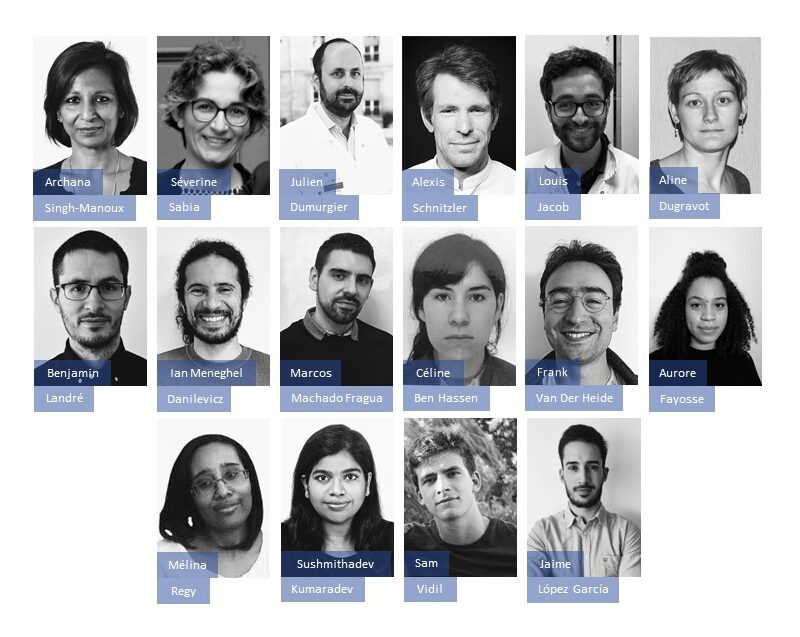The research undertaken in the team is on ageing, with a focus on the determinants of decline in physical, cognitive, and mental function, along with neurodegenerative diseases, primarily Alzheimer’s disease and related dementias, including considerable research on cerebrospinal fluid (CSF) biomarkers. The team uses data from several longitudinal cohort studies and hospital-based memory centres. Multimorbidity, frailty and disability are other outcomes examined in the team, to provide a comprehensive picture of health at older ages. The specificity of the team is use of the lifecourse approach, defined by longitudinal analyses where exposure to a range of risk and protective factors over the adult lifecourse are studied to determine associations with old age health outcomes. The team is led by Archana Singh-Manoux and Séverine Sabia; the specificity of our approach is defined by:
- A focus on functional status as well as disease end points for research on changes in motor and cognitive function, starting in midlife.
- Study of both cognitive & motor change over time to assess how central nervous system dysfunction impacts the sequence of age-related changes in functioning.
- Repeat assessment of multiple risk factors (social, behavioural, cardiometabolic, inflammatory, etc.) to take a systems approach and a comprehensive view on aetiology rather than one focussed on a single risk factor.
- The expertise of our biostatisticians, Aline Dugravot and Aurore Fayosse, provides a strong methodological core to tackle limitations in studies on ageing due to suboptimal consideration of missing data, competing risks, selection, and reverse causation biases.
- Triangulation, by using multiple analytical approaches to address a research question, and seeking replication in collaborative studies when pertinent data exist elsewhere in the world.

Contacts and location
Université Paris Cité
10 Avenue de Villemin
75010, Paris
archana.singh-manoux@inserm.fr
severine.sabia@inserm.fr